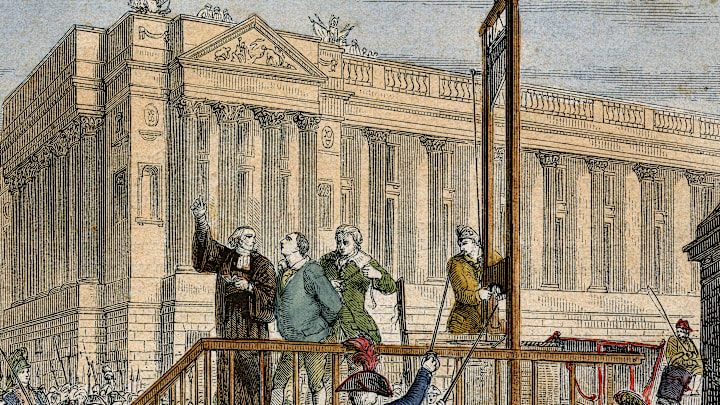
Tsar Nicholas II of Russia
"What? What?"
Nicholas II inherited the role of Emperor from his father, Alexander III in 1894. While he had been raised to the role, it didn't fit him terribly well, as he was not intellectually or politically minded. Despite that, he believed in a pure monarchy, not allowing those with more knowledge or skill to have a say in governance.
This was a bad background, given the rise of revolutionaries in Russia. He was forced to commit to more democratic measures throughout his reign, but frequently ignored them. Ultimately, he abdicated the throne on March 15, 1917. He and his family were then taken first to Tobolsk, and then to Yekaterinburg, where they would meet their deaths.
In the early hours of July 17, the Romanov family was woken and commanded to go to the basement. Their deaths had been planned, but the particular timing may have been because of a suspected rescue party. They were informed that they would be shot, which the tsar responded to in shock and confusion, and then they were killed, deaths which prompted stories like Anastasia about possible escapees for decades.

Habibullah Kalakani, King and Emir of Afghanistan
"I have nothing to ask God, he has given me everything I desired. God has made me King."
Habibullah Kalakani began life humbly, as the son of a water carrier from a poor village. He rose in the ranks of the military, but developed a pattern of desertion and betrayal, eventually winning the throne in January 1929. His reign is controversial, with some seeing him as a hero opposed to aristocracy and others seeing him as a brutal tyrant.
Habibullah only kept power for nine months, during which multiple forces tried to remove him from the throne. In October 1929, he surrendered to Nadir Khan on a promise of safety. That promise was not kept, and Habibullah was informed that he and his supporters would be shot.
His last words are not fully known, as I could not find any reliable sources documenting them, but they have been popularly documented as listed above. These words follow the more noble presentation of Habibullah Kalakani, a man who claimed power far greater than ever could have been expected. Like so many others on this list, he seemed resigned to his fate, though appreciative of the position he'd managed to reach in his lifetime.
Throughout history, monarchs have frequently been killed for their positions. Perhaps they were killed by military or dynastic rivals, seeking to claim the throne for themselves. Perhaps they were the victims of revolution, executed as a symbol of the death of monarchies and the birth of new democracies.
In either situation, the deposed royals became symbols themselves, with their lives and words representing a previous era. Their last words have been documented and studied as proof of their deepest beliefs and intentions. This is probably putting too much weight behind words said at the moment of death, but it remains a fascinating insight into the minds of those who once had total power, only to find themselves powerless to save themselves.
Have questions about history, trivia, or anything else? Send an email to askeverest@fansided.comand we might answer here on the site!
